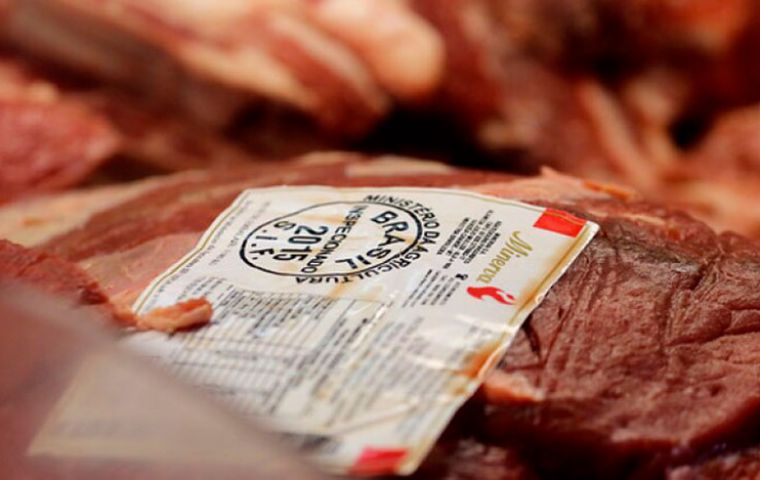MercoPress. South Atlantic News Agency
China opens its market to Colombia beef; Brazil concerned as export meat prices have fallen considerably
 Likewise even when average prices of chicken are in line with those recorded in 2022, the trend is for further devaluations in the coming months.
Likewise even when average prices of chicken are in line with those recorded in 2022, the trend is for further devaluations in the coming months. Brazilian meatpacker Minerva said on Monday it had received a notification from Colombia’s government saying that China has approved a sanitary protocol in order to open its market for Colombian beef exports.
Minerva, which owns two plants in Colombia, said in a securities filing only final bureaucratic procedures are now required for the exports to be effectively cleared.
“The Bucaramanga and Cienaga de Oro plants, once approved, will add to assets in Brazil, Argentina, and Uruguay and expand our exposure to China and maximize our arbitrage capacity,” Minerva added.
But despite Minerva's positive news for the company, Brazil’s strong performance in beef and chicken exports this year is highly conditioned to the decline in these product prices in the international market, and a growing point of concern for the animal protein sector.
According to the protein analyst at Safras & Mercado, Fernando Iglesias, although the average prices of chicken are in line with those recorded in 2022, the trend is for further devaluations in the coming months.
Likewise with a similar scenario observed in the beef sector, with prices paid by Chinese importers falling from US$ 7,500 per ton last year to US$ 4,500 per ton this year.
“If prices are falling, export revenues are also lower. And that’s one of the reasons why the price of cattle has fallen so much,” Iglesias said.
Regarding chicken meat, Iglesias said Brazil will maintain global leadership in the item even with sanitary problems. ”Over the next five to ten years, it seems unlikely that Brazil will lose this leadership. So the problem here is not volume; it’s the average price,” he said during an online event by the consultancy.
In August, the average price paid for Brazilian chicken meat was US$ 1,872.80 per ton, a 12.24% decrease compared to the same period in 2022 and a 6.3% decrease compared to July.
In total, Brazil exported 3.4 million tons of chicken meat from January to August, with revenue of over US$ 6.7 billion. Safras & Mercado’s forecast is that this volume will reach 5 million tons this year, equivalent to one-third of global trade.
Following the devaluation of the Yuan, the Chinese have maintained the same level of payments in other importing markets. The market is expected to recover as a result of Chinese government stimulus measures, including further currency depreciation.
“Economic recovery in China is crucial for the formation of beef prices in the international market and, consequently, for cattle,” Iglesias said.
The Safras & Mercado consultancy predicts that Brazilian beef exports will amount to 3.3 million tons in 2023, a 1.49% decrease compared to last year




Top Comments
Disclaimer & comment rulesCommenting for this story is now closed.
If you have a Facebook account, become a fan and comment on our Facebook Page!